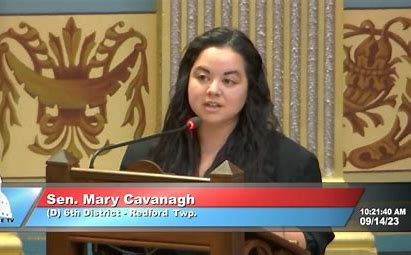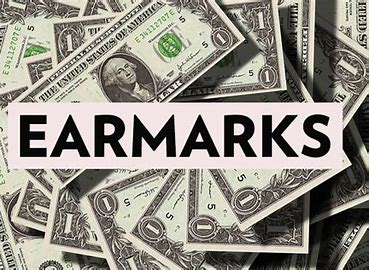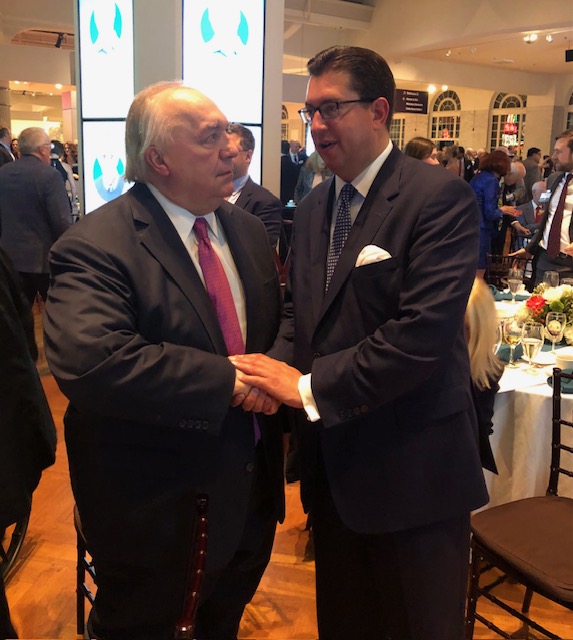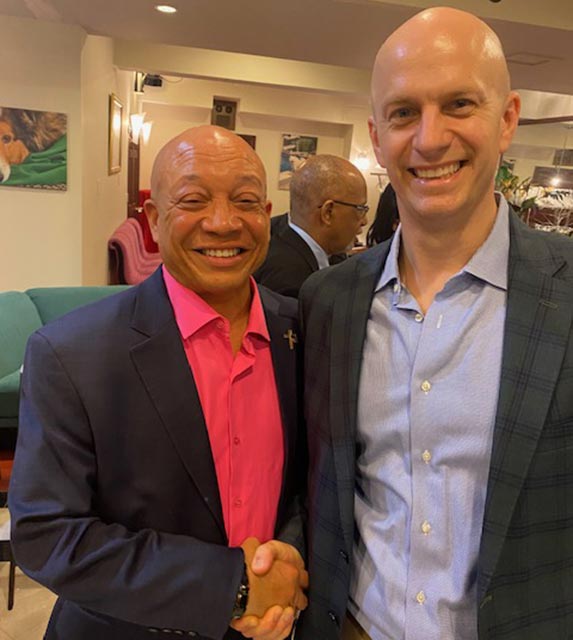
|
|||||||
|
 'LEO Lifeline' Budget Attempts to Address Tariff Tensions in Wake of Federal Uncertainty 'LEO Lifeline' Budget Attempts to Address Tariff Tensions in Wake of Federal UncertaintyEntities that suffer financial strain from President Donald Trump’s new tariffs would be eligible to receive a piece of $100 million in funding that the Senate is setting aside in next year’s budget, based on a spending plan that moved out of subcommittee on Thursday. Called by its primary author “The LEO Lifeline,” the Senate’s Labor and Economic Opportunity (LEO) budget splits the proposed $100 million into seven buckets designed to give a helping hand as people “navigate these times and continue to thrive.” “People are really struggling with the lack of humanity coming out of the federal government right now,” said Sen. Mary Cavanagh (D-Redford Twp.), chair of the Senate LEO/MEDC Appropriations subcommittee. People are scared. That’s why, this year, I’m referring to this budget as the LEO lifeline.” The $100 million proposed in SB 179 include: - $20 million in grants and loans to businesses impacted by tariffs, with priority given to the businesses that experience the most negative financial impact. - $20 million in economic relief and emergency preparedness grants to nonprofit organizations that provide community support. - $30 million in worker training and retooling initiatives, with priority given to workers in industries most impacted by tariffs. - $10 million in grants to food banks to prioritize the purchase of locally grown food. - $10 million in grants to apprenticeships and adult education programs, with priority given to industries most in demand of workers. - $9 million in grants or incentives for Michigan’s supply chain. - $1 million for an RFP designed to start development on making public safety vehicles in-state, with a priority on fire trucks. The Senate’s budget also includes $125 million for housing programs, $55.75 million for small business support and $34.23 million for six workforce-center programs. Within that workforce bucket is $3 million in “direct payment relief” to Michigan veterans who lost their jobs “as a result of cuts made by billionaire Elon (Musk),” Cavanagh said. She said the money will not solve the state’s “housing crisis” and it won’t backfill the losses many may be experiencing due to the federal cuts. “But this recommendation can be the first step to show every Michigander that this will remain a state where we can live, work and play,” she said. The budget was reported on a party-line vote.
DCD OUT & ABOUT 
Jake German was happy to arrange a tour of the Spectrum Juvenile Justice Facility in Highland Park with State Representative Mai Xiong. Joing Rep. Xiong (L-R) were Stacie Bowens of Spectrum Child & Family Services, Derrick McCree of Spectrum Juvenile Justice Services, and Josh Swaninger, CEO of Spectrum Human Services.
(Left) Jake and Gov. Engler caption: Jake was grateful for the opportunity to catch up with former Governor John Engler at the Mackinac Center for Public Policy dinner held at the Henry Ford Museum last week. (Right) Justin and Neeley: Justin Dunaskiss was in attendance at a recent fundraiser for Flint Mayor Sheldon Neeley held at the home of DCD client Avinash Rachmale, President of Lakeshore Global Corporation. DCD IS A FULL-SERVICE, BI-PARTISAN, MULTI-CLIENT LOBBYING FIRM REMEMBER ALL OF DCD'S SERVICES: ARTICLES OF POLITICAL INTEREST:
Thousands of Miles of Michigan Trails Need Clearing After Ice Storm Michigan Medicaid Has Ballooned. Cuts Are Likely. Here's What to Know Liberal Judges Tighten Grip on Michigan Supreme Court Michigan Special Elections: What Metro Detroit Voters Should Know on May 6th Wayne County, Michigan Voters Weigh in on Trumps First 100 Days Marijuana News, Updates, & Articles of Interest
We are here to help you with: municipal lobbying, license application writing and assistance, business plans, state required operations manuals and compliance, facility design, corporate structure, and design and branding. We are experts in both medical and recreational cannabis policy and have been in the space for over ten years. We welcome any opportunity to work with you in the future! ARTICLES OF CANNABIS INTEREST: State Supreme Court Dismisses Warren Marijuana Case 'Life Savings are on the Line,' Michigan Cannabis Regulator Warns Special Meeting Planned to Discuss Eastpointe Cannabis Retail Business How Much Revenue are Indiana's Neighbors Making off Marijuana Sales? Doing Things Differently DCD is rebranding, and our bottom line is your bottom line. We are striving to create and foster strong relationships with clients and lawmakers, deliver results with strong ethics and class, but above all else, out-hustle and out-smart our competition every day to be the very best. We’re making chess moves while others are playing checkers. Everything we do is with you in mind, we’re doing things we’ve never done before and aggressively pursuing opportunities. The time is now. DCD has taken our firm to the next level and your involvement and investment paired with our knowledge and expertise is going to launch the great state of Michigan forward. |
|||||||
|
|||||||
Contact Us
Address
Phone
Copyright © Dunaskiss Consulting and Development Inc.

 Senate DHHS Budget Makes Multiple Adjustments to Governor's Recs
Senate DHHS Budget Makes Multiple Adjustments to Governor's Recs House Window for Budget Earmark Requests Now Closed
House Window for Budget Earmark Requests Now Closed

 THE DCD MARIJUANA TEAM: YOUR COMPETITIVE EDGE!
THE DCD MARIJUANA TEAM: YOUR COMPETITIVE EDGE!











